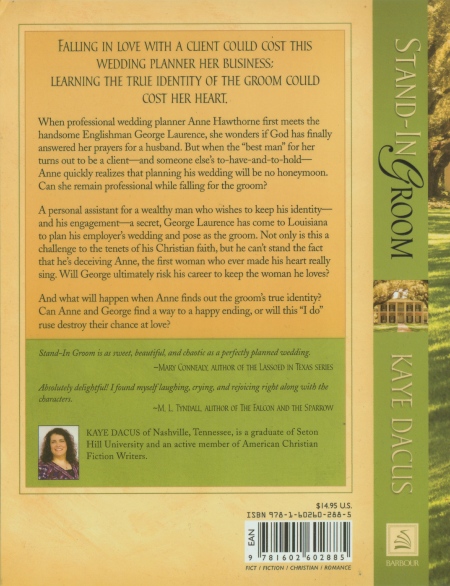Critical Reading: Goals & Back Covers
As I mentioned in a comment yesterday, critical reading is different than reading for pleasure. The main difference is having a goal when you set out to read. This is not a curl up in the bed half an hour before falling asleep kind of reading. This is sitting in a bright room with pen in hand ready to write things down kind of reading.
Choose your book with purpose.
There should be a reason why you’ve chosen the particular novel to read critically. As I’ve already suggested, choose a book in the genre you write put out by a publishing house you’re targeting.
Set goals. Why did you choose this book?
When I picked books to do this with in grad school, I looked for stories that included elements I wanted to either strengthen or figure out in my own WIP. For example, I chose Happily Ever After and The Celebrity because a key conflict in both plots is that the hero has hidden his celebrity-status identity from the heroine (and everyone else around him), and I wanted to see how these two authors I greatly respect (Susan May Warren and Robert Elmer) handled it in a book published in the CBA. I chose Linda Windsor’s Along Came Jones when I was trying to instill more humor in my writing.
Read the back cover copy and start answering questions:
–What’s the genre listed on the back cover? (It’s usually on or around the barcode.) After reading the cover copy, does that sound like the right genre category? Does there appear to be a subgenre (i.e., is it predominantly a romance or is it a romantic suspense)?
–What do you think is the intended audience? (gender, age, CBA/ABA)
–What does it sound like the thematic conflict is?
–What does the back cover copy make it sound like the master plot is?
–What are competitive/similar books you’ve read before?
–Have you read anything else by this author? What are your general thoughts on this author’s other work?
–Have you read any reviews of this book? Were they positive or negative? Did the reviews affect your choice to read this book?
–Is there an endorsement on the cover by another author? Have you ever read anything by that author? What do you think of that author’s writing? Did the endorsement affect your decision to choose this book?
–Are you committed to reading this book all the way through no matter what?
Once you’ve answered these questions, you’ll be ready to start your critical reading. Make sure you have your Post-its, pens, highlighters, and notepad!
Trackbacks
- Critical Reading: The First Date « KayeDacus.com
- Writing Series Spotlight: Critiquing and Critical Reading « KayeDacus.com
Comments are closed.


Excellent, I’ve got a book in mind for this exercise, and I’ll be following along.
LikeLike
I’ve got a couple of books in mind, but haven’t made a final choice yet.
I’ll choose one by this weekend.
LikeLike
How do I know that I’m analyzing it correctly?
LikeLike
Just answer the questions as best you can (and don’t miss the rest of the posts in this series, which go into a lot more details on different aspects of critical reading.)
Because this is something to do for your own edification, there are no right or wrong answers. The right way to answer the questions is as honestly and thoughtfully as you can.
LikeLike
Thank you! I’m going through all of the posts on this subject and making notes. I gleaned a lot more information as I read through. This is like taking a course in college! 🙂
LikeLiked by 1 person
That’s where I learned to do this—grad school. Have fun with it!
LikeLike
If you don’t understand some of the questions, you can Google the terminology for clarification, or just skip those questions—or even better, make up your own questions focused on what you want to learn from reading the book, about writing, story telling, character development, etc.
LikeLike